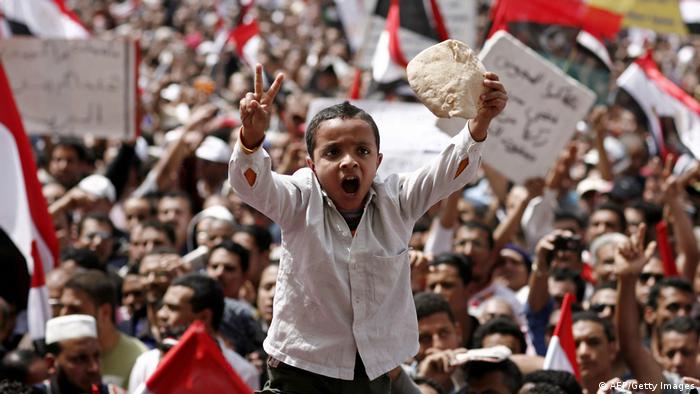
The protests are already starting. Last week in southern Iraq, hundreds of demonstrators met in the center of the city of Nasiriyah to decry price rises for bread and cooking oil, among other goods. Since the beginning of the war in Ukraine, prices for products imported from there have risen by up to 50% in Iraq.
Then this week, thousands of Sudanese took to the streets to protest ongoing military rule and the fact that the price of bread had gone up there by about 50% too.
The increases in both of those countries are the result of Russian invasion of Ukraine, an agricultural powerhouse and one of the world's most important wheat producers, as well as the biggest exporter of seed oils. About half of Ukraine's wheat goes to the Middle East. And Russia, which invaded its neighbor, is the world's biggest exporter of wheat.
Market analysts say that supply from both countries is at risk thanks to the war and that instability is causing wheat prices overall to go up. They have risen 50% in just the past month to come close to a 14-year high. This is now starting to have an outsized impact on Middle Eastern nations.
Bread is a staple food in the Middle East, eaten with most meals. Researchers suggest that, depending on the country, bread and grains make up to half of the average local's diet there, compared to up to a quarter of the average European's.
"In these countries, affordable bread for the working masses is a social contract," Michaël Tanchum, a senior policy fellow at the European Council on Foreign Relations, who specializes in political economics of the Middle East and Africa, explained. Many Middle Eastern countries subsidize bread for low-income families.
In the past, rising bread prices have been a catalyst for political change in the region.
Egypt, for example, has a history of "bread riots". In 1977, after economic reforms saw state subsidies cut and food prices rise, there were violent demonstrations around the country that resulted in at least 70 deaths.
In 2011, during the Arab Spring, a popular slogan at demonstrations that would eventually topple the military government of Egyptian leader, Hosni Mubarak, was "bread, freedom and social justice."
Researchers looking into the causes of the Arab Spring protests of 2011, which changed the political landscape in the region, found that high food prices and food insecurity, often due to climate change, played a role alongside the public's frustration with their authoritarian leaders.
The phenomenon is ongoing: In 2019, Sudan's President Omar al-Bashir was pushed out of power by protests that began when bread prices tripled.
"Between rising energy and food prices, the Ukraine crisis could trigger renewed protests and instability in several MENA countries," analysts at the Washington-based Middle East Institute wrote in a February brief.
Humanitarian crisis feared
Ferid Belhaj, the World Bank's vice president for the Middle East and North Africa, has pointed to his organization's particular concerns about Syria, Lebanon and Yemen, countries where the government and economy is already fragile, and which also depend heavily on wheat imports.